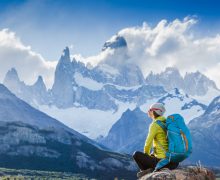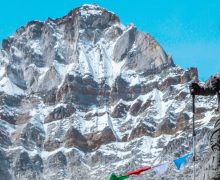Recommended Vaccinations and Preventive Medications
The following vaccines are recommended for your travel to Nepal. Discuss your travel plans and personal health with a health-care provider to determine which vaccines you will need.

- Hepatitis A - Recommended for everyone. Transmission of hepatitis A virus can occur through direct person-to-person contact; through exposure to contaminated water, ice, or shellfish harvested in contaminated water; or from fruits, vegetables, or other foods that are eaten uncooked and that were contaminated during harvesting or subsequent handling.
- Typhoid - Recommended for everyone. You can get typhoid through contaminated food or water in Nepal. CDC recommends this vaccine for most travelers, especially if you are staying with friends or relatives, visiting smaller cities or rural areas, or if you are an adventurous eater.
- Polio - One-time booster recommended for any adult traveler.
- Yellow Fever - Required for everyone arriving from a yellow-fever-infected area
- Hepatitis B - Recommended for everyone. You can get hepatitis B through sexual contact, contaminated needles, and blood products, so CDC recommends this vaccine if you might have sex with a new partner, get a tattoo or piercing, or have any medical procedures.
- Measles, mumps, rubella (MMR) - Two doses recommended for everyone born after 1956, if not previously given.
- Tetanus-Diphtheria - Revaccination recommended every 10 years.
- Japanese Encephalitis - You may need this vaccine if your trip will last more than a month, depending on where you are going in Nepal and what time of year you are traveling. You should also consider this vaccine if you plan to visit rural areas in Nepal or will be spending a lot of time outdoors, even for trips shorter than a month. Your doctor can help you decide if this vaccine is right for you based on your travel plans. See more in-depth information on Japanese encephalitis in Nepal.
- Rabies - Only necessary if visiting lowland areas like Chitwan.
Malaria
When traveling in Nepal, you should avoid mosquito bites to prevent malaria. You may need to take prescription medicine before, during, and after your trip to prevent malaria, depending on your travel plans, such as where you are going, when you are traveling, and if you are spending a lot of time outdoors or sleeping outside. Talk to your doctor about how you can prevent malaria while traveling.
Food and Waterborne Diseases
Make sure your food and drinking water are safe. Food and waterborne diseases are the primary cause of illness in travelers. Travelers' diarrhea can be caused by viruses, bacteria, or parasites, which are found throughout Nepal and can contaminate food or water. Infections may cause diarrhea and vomiting (E. coli, Salmonella, cholera, and parasites), fever (typhoid fever and toxoplasmosis), or liver damage (hepatitis).Hide Stay Healthy and Safe.
To stay healthy, do...
- Wash your hands often with soap and water or, if hands are not visibly soiled, use a waterless, alcohol-based hand rub to remove potentially infectious materials from your skin and help prevent disease transmission.
- In developing countries, drink only bottled or boiled water, or carbonated (bubbly) drinks in cans or bottles. Avoid tap water, fountain drinks, and ice cubes. If this is not possible, learn how to make water safer to drink.
- Take your malaria prevention medication before, during, and after travel, as directed. (See your health care provider for a prescription.)
- To prevent fungal and parasitic infections, keep feet clean and dry, and do not go barefoot, even on beaches.
- Always use latex condoms to reduce the risk of HIV and other sexually transmitted diseases.
- Protect yourself from mosquito insect bites:
- Wear long-sleeved shirts, long pants, and hats when outdoors.
- Use insect repellents that contain DEET (N, N-diethylmethyltoluamide).
- If no screening or air conditioning is available: use a pyrethroid-containing spray in living and sleeping areas during evening and night-time hours; sleep under bed nets, preferably insecticide-treated
Do not…
- Do not eat food purchased from street vendors or food that is not well cooked to reduce risk of infection (i.e., hepatitis A and typhoid fever).
- Do not drink beverages with ice.
- Avoid dairy products, unless you know they have been pasteurized.
- Do not swim in fresh water to avoid exposure to certain water-borne diseases such as schistosomiasis.
- Do not handle animals, especially monkeys, dogs, and cats, to avoid bites and serious diseases (including rabies and plague). Consider pre-exposure rabies vaccination if you might have extensive unprotected outdoor exposure in rural areas.
- Do not share needles for tattoos, body piercing or injections to prevent infections such as HIV and hepatitis B.
- Avoid poultry farms, bird markets, and other places where live poultry is raised or kept.









